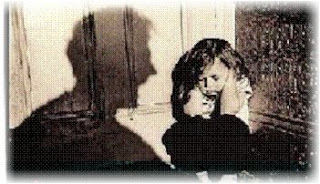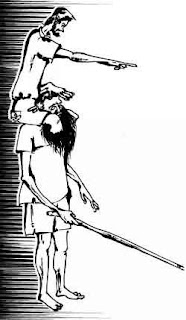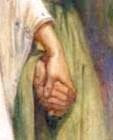DISIPLINA
 Paggunita sa Banal na Alaala ni San Juan Bosco, Pari
Paggunita sa Banal na Alaala ni San Juan Bosco, PariMt 18:1-5
Pasaway – ito ang tawag sa mahirap pagsabihan o, sa madaling-salita, “makulit”. Bagamat hindi naman esklusibo, kadalasang mga bata at kabataan ang nasasabihan ng “Pasaway ka!”
Sa tutoo lang, hindi lang mga bata at kabataan ang pasaway, hindi ba? Pero kadalasan nga ang mga katulad nilang mahirap pagsabihan o talaga namang makulit ang tinatawag na pasaway.
Noong panahon ni Don Bosco, may mga pasaway na ring mga bata at kabataan. Pasaway, sa turing ng mga nakatatanda. At walang gaanong pinagkaiba ang nakatatanda noong panahon ni Don Bosco sa mga nakatatanda ngayong panahon natin: ang batang pasaway, e di sinasaway! Sa madaling sabi, kailangang idisiplina ang pasaway. At maraming paraan ng pagdisiplina.
May dalawang uri ng pagdidisiplina. Ang isa ay ang tamang pagdidisiplina. Ito ang uri ng pagdidisiplina nang hindi pagpaparusa ang pangunahing layunin ng dumidisiplina. Sa halip, ang pakay ng pagdidisiplina ay ang maiwasto – muli, hindi maparusahan – ang pasaway sa pamaraang hindi marahas at talagang nagbibigay-leksyon sa dinidisiplina dahil pinagsisikapan nitong mabuti na maipaliwanag sa dinidisiplina ang dahilan ng pagdidisiplina. Kaya nga tamang pagdidisiplina. Ang isa pa ay ang pagdidisiplinang puro tama. Kaya naman ito puro tama dahil una, puro tama sa palo ang dinidisiplina at, ikalawa, palaging ang dumidisiplina lang ang tama kasi ayaw tumanggap ng paliwanag ng dinidisiplina. Marahas ang pagdidisiplinang ito. Ganito ang pagdidisiplina ng mga taong sinasabing “mabigat ang kamay”. Makitid din ang pagdidisiplinang ito dahil walang puwang sa pag-uusap o dialogo. At dahil marahas at makitid nga, walang mabuting ibinubunga ang ganitong uri ng pagdidisiplina. Tunay ngang ang batang lumalaki nang walang pagdidisiplina ay sawi, pero ang batang lumalaki naman sa paraan ng ikalawang uri ng pagdidisiplina – ang pagdidisiplinang puro tama – ay karaniwang nagiging marahas din at makitid ang utak pagtanda. Ang biktima ngayon nagiging mambibiktima bukas – alam po ba ninyo iyon?
Pinagsikapang idisiplina ni Don Juan Bosco ang mga pasaway na kabataan noong kanyang panahon. Ang ginamit niya ay ang tamang pagdidisiplina at hindi pagdidisiplinang puro tama. Paniniwala rin niyang dapat turuan ang mga pasaway na kabataan ng mga kapaki-pakinabang na mga gawain para malayo sila sa tukso ng masamang pamumuhay. Bukambibig pa nga niyang ang taong tamad daw ay lapitin ng tukso. Ang unang hakbang niya sa tamang pagdidisiplina ay ang pagsisikap na unawain at pakibagayan ang kanyang mga dinidisiplina nang hindi binabalewala ang hamon ng tuwid na pamumuhay. Tinipon niya ang mga kabataang delinkuwente – mga kabataang pasaway at itinuturing ng lipunan bilang wala nang pag-asa – at tinuruan sila ng mabuting asal at gawaing kapaki-pakinabang, gaya ng mga gawaing teknolohikal. Naakit ni Don Bosco ang ilang mga kalalakihang nagtalaga ng sarili sa Diyos sa pamamagitan ng paghuhubog sa mga kabataan at itinatag nila ang Salesians of Don Bosco, sa inspirasyon ng mga aral ni San Francisco de Sales. At ang pinaka-koronang putong sa pagsisikap ni Don Bosco ay ito: marami sa mga kabataang dating pasaway na kanyang kinupkop at hinubog ang naging kasapi ng kongregasyong ito ng mga pari at hermanong relihiyoso.
Magpahanggang ngayon, buhay na buhay ang kongregasyong ito at patuloy na humuhubog sa maraming mga kabataan ayon sa pamamaraan ni San Juan Bosco. Iyon nga lang, hindi na lang mga pasaway na kabataan ang pinaglilinkuran nila.
Ipanalangin nawa ni San Juan Bosco ang lahat ng mga kabataan sa buong mundo – silang lahat ay nangangailangan ng disiplina para sa isang magandang kinabukasan. Pero, higit sa lahat, ipanalangin, turuan, at tulungan nawa ni San Juan Bosco ang mga nakatatandang may pananagutang disiplinahin sila.

















